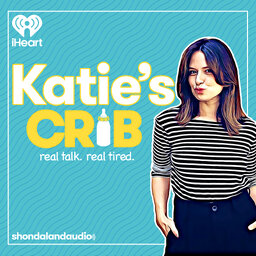Exploring Early Childhood Development w/ Carol Provost
This week’s Katie’s Crib episode is dedicated to topics surrounding early childhood development - featuring child development specialist, Carol Provost! Join us as we dig into Carol's 40+ years of knowledge as a parent support expert.
We first explore how Carol found her passion for helping children learn and grow over the years. She then sheds light on understanding such things as handling tantrums and time outs appropriately. Carol also stresses how we can take a non-judgmental approach and help kids embrace their unique qualities (e.g., being shy, spirited, high sensory).
Plus, why should we be careful when it comes to making narrative for our kids? Carol explains all: tune in for the answer!
Executive Producers: Sandie Bailey, Alex Alcheh, Lauren Hohman, Tyler Klang & Gabrielle Collins
Producer & Editor: Casby Bias
Associate Producer: Akiya McKnight
NOTE: This episode was recorded on May 26, 2023.
In 1 playlist(s)
Katie's Crib
With empathy and a sense of humor about it all, Katie’s Crib keeps it real while providing an indisp…Social links
Follow podcast
Recent clips

Season Finale and Farewell: Reflections on the Journey of Katie’s Crib
52:09

Riki Lindhome: Surrogacy, Heartache, and the Resilient Road to Motherhood
39:23

Nicolette Robinson: Broadway Trailblazer, Motherhood & Co-authoring a Children's Book
45:36
 Katie's Crib
Katie's Crib